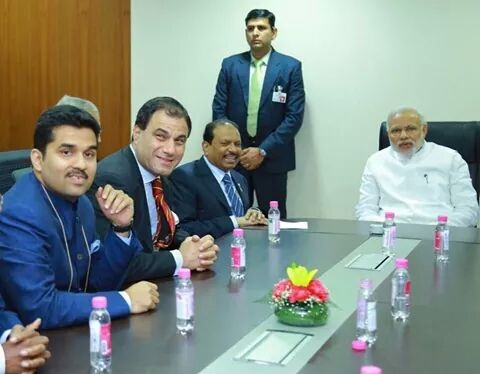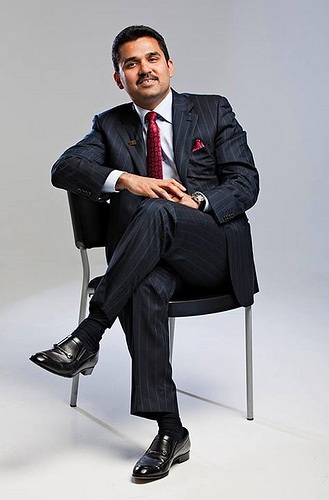
RTI throws up EVM irregularities in Maharashtra, UP poll commissions too (Part II)
Mumbai : There are contradicting records of the numbers of Electronic Voting Machines (EVMs) in stock, their costs, their mode of transportation and other details, as per replies received under the Right to Information Act.
Further, it has emerged that no audits have been conducted by the State Election Commissions of Maharashtra and Uttar Pradesh on EVMs.
Seeking to corroborate the information received from Election Commission of India (ECI), Electronics Corporation of India Ltd (ECIL), Hyderabad and Bharat Electronics Ltd (BEL), Bengaluru, Mumbai RTI activist Manoranjan S. Roy had sought information on EVMs from two major states — Maharashtra and Uttar Pradesh — and received alarming replies.
The Maharashtra State Election Commission (M-SEC) informed on May 2, 2017 that since 2014-2017, it had not conducted any audit pertaining to the number of EVMs, their cost, the security staff, mode of transportation of the EVMs, etc.
However, M-SEC confirmed it is in possession of 76,250 Balloting Units (BUs) and 76,050 Controlling Units (CUs) — the two parts of the EVM system. Additionally, the ECI had provided it with another 15,000 BUs and 110,000 CUs, each costing Rs.9,200 (BU+CU). But it gave no information on the number of defective EVMs lying with it.
When probed further on this, major differences came up in the information provided by the ECI on March 03, 2017 and July 01, 2017 — which points a needle of suspicion towards misuse of EVMs, Roy contended.
In response to a query, the BrihanMumbai Municipal Corporation (BMC) said that for corporation elections on February 21, 2017, it had set up 7,304 polling centres in which it deployed 8,161 BUs and 7,304 CUs.
At that time, 136 BUs and 752 CUs were were found to be defective prior to the elections and another 16 BUs and 15 CUs broke down on election day.
To similar queries, the Uttar Pradesh State Election Commission (UP-SEC) said on 08-05-2017 that it had deployed a total 159,791 BUs and 147,164 CUs in the February-March 2017 assembly elections.
Like M-SEC, the UP-SEC also stated that no audits were conducted for the same, adding the (audit) could be available with ECI.
There were differences in the number of EVMs the UP-SEC said it had received from ECIL in 2012, since the ECIL had already made it clear it had not supplied any EVMs to any state during 2006-2013.
Also, the ECI and UP-SEC figures differ vastly on number of polling booths. According to UP-SEC, the total number of polling booths set up were 190,388 in Assembly elections 2017 while the ECI said the number of booths were 11,356 — an obviously incorrect figure.
For those elections, the BEL supplied 139,438 BUs and 105,218 CUs of Model M2MEK, and ECIL supplied 84,480 BUs and 85,170 CUs from five different states, totaling to 224,918 BUs and 190,388 CUs for the assembly polls.
Again at variance with the ECIL’s replies, the UP-SEC said on 30-10-2017 that in 2011, the company had supplied 16,730 BUs and 12,100 CUs for a payment of Rs 142.86 crore plus transportation and VAT of Rs 32,276.
The ECIL had earlier stated that from 2006-2013, it had not supplied any EVMs to any state, as per RTI reply of 16-09-2017.
No transportation details were provided by UP-SEC on grounds that the EVMs were received from different states across India.
The UP-SEC said for the 2017 elections, it received 6,000 BUs and 3,000 CUs from Maharashtra plus another 81,800 BUs and 47,750 CUs from the ECIL, contradicting the UP-SEC’s own figures which said on 08-05-2017 it had deployed a total 159,791 BUs and 147,164 CUs in the assembly elections.
On January 11, 2018, the Madhya Pradesh-State Election Commission (MP-SEC) had supplied on loan 50,000 BUs and 25,000 CUs of EVM Model M1 to the UP-SEC.
“The RTI replies by both Maharashtra and UP SEC’s show they have not conducted audits, maintained proper accounts, there are contradictions galore among all the concerned agencies on the number of EVMs supplies Or received, raising serious doubts on where such huge amounts of public money have actually gone,” Roy said.
“There are absolutely no records of which EVMs were actually used for elections, how many are defective or defunct, why and which different models were deployed, who has approved these different models, the type of software-hardware used and whether they are hack-proof, whether the software is dedicated (exclusive) or purchased from the markets, etc,” Roy said.
The net result is that large stocks of unaccounted EVMs along with BUs/CUs are lying with various state elections commissions all over India and prone to severe misuse by vested interests during different elections where they are deployed, he explained, adding that Karnataka elections are coming up in May 2018.
Moreover, since the past 30 years, there is continuous purchase of EVMs by the ECI for the elections, but even the basic details are missing.
“There’s clearly (unexplained discrepancy) running into many thousands of crores of rupees, blatantly going on since nearly three decades. If this is the situation in just two states, the state of affairs in all other states can well be imagined,” Roy said.
All this calls for a thorough review of the authentic stock position of all EVMs from 1989, the number of non-functional or defective EVMs of both the suppliers and the available stocks with all states, the models and software installed, etc, well before the next general elections, Roy demanded.
Roy has filed a Public Interest Litigation in Bombay High Court, seeking directions to all parties to provide all records/documents pertaining to EVMs, setting up of a suitable probe panel to ban EVMs till the logical outcome of the probe.
Part-1 : EVM skeletons in RTI replies: Contradictory numbers from EC, suppliers raise question mark on polls
—IANS


